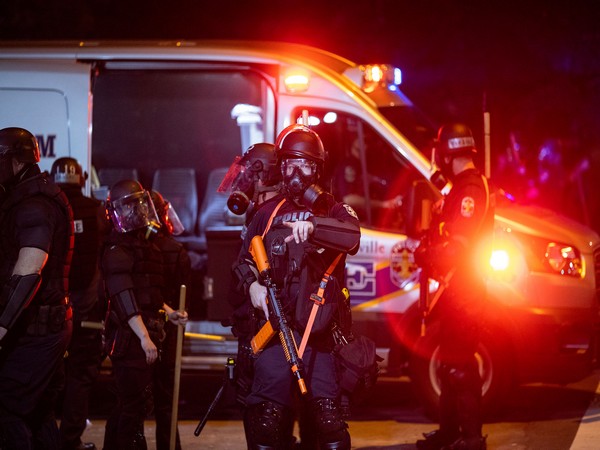Can 'protection orders' protect US immigrants?
May 28, 2025

Washington [US], May 28: The writ of habeas corpus has become central to legal disputes over the US government's decision to arrest and deport immigrants.
What is a body protection order?
The Trump administration has carried out a series of arrests and deportations of immigrants in recent months. At the same time, White House officials have repeatedly called illegal immigration an "invasion" of the United States, strengthening the legal basis for calling for the suspension of the protection order.
The basis of the writ of habeas corpus, in Latin, dates back to the Middle Kingdom of England nearly 1,000 years ago. According to The New York Times , the writ of habeas corpus is a right enshrined in Article 1 of the Constitution. Accordingly, the person arrested has the right to appear in court so that a judge can determine whether the authorities have the authority and the legal grounds to arrest the person. Essentially, habeas corpus is the foundation of the legal system that emphasizes that a person cannot be arbitrarily arrested.
The US Constitution also stipulates that the order of protection can be suspended in the event of an invasion or rebellion, and that only Congress has the authority to suspend it. The US has suspended the order of protection four times. The first time was during the American Civil War in 1861, when US President Abraham Lincoln suspended the order, and this is also the only time a US president has suspended the order of protection before Congress approved it. According to Foreign Policy magazine , unlike previous times when the US was actually at war, the "invasion" of illegal immigrants that the White House cited is said to have a political purpose rather than a security one.
Legal crisis risk
Legal experts agree that the US Congress has absolute authority to suspend or not to suspend a personal protection order. However, this does not make the US "immune" to legal disputes between the Trump administration and the country's judiciary regarding immigration detention policies. At that time, the US Supreme Court's task will be increasingly important when it will intervene to clarify legal regulations, to prevent the risk of the executive branch exceeding its power.
President Trump has repeatedly expressed his displeasure with the Supreme Court blocking immigration deportation decisions, and has also made vague statements about whether he is following constitutional rules. Trump's deputy chief of staff, Stephen Miller, said on May 9 that he would seek a solution to suspend the protection order.
Shortly thereafter, US Secretary of Homeland Security (DHS) Kristi Noem testified before Congress on May 13. Ms. Noem argued that habeas corpus is a constitutional right that allows the president to deport people from the United States. This statement was quickly rejected by Senator Maggie Hassan. Ms. Tricia McLaughlin, assistant to Secretary Noem, clarified the Secretary's statement: "Congress essentially holds the power of the habeas corpus, but in reality, presidents have acted first, then the legal authority. Previous presidents have suspended habeas corpus during times of crisis."
Noem's remarks are gaining more attention as she leads the agency responsible for enforcing immigration detention and deportation policies. There have been cases of people being detained by the Trump administration, then filing habeas corpus orders and being released by a court. Among them is Tufts University student Rumeysa Ozturk, a Turkish citizen who was released on May 9 after being arrested for writing a pro-Palestinian editorial, according to USA Today . Another student, Mohsen Mahdawi, from Columbia University, was also arrested for supporting the Palestinians and was released earlier this month under a habeas corpus order. However, getting a court to agree to release someone under habeas corpus is not a simple matter. In some cases, non-U.S. citizens only receive habeas corpus orders after they have been deported.
Source: Thanh Nien Newspaper









